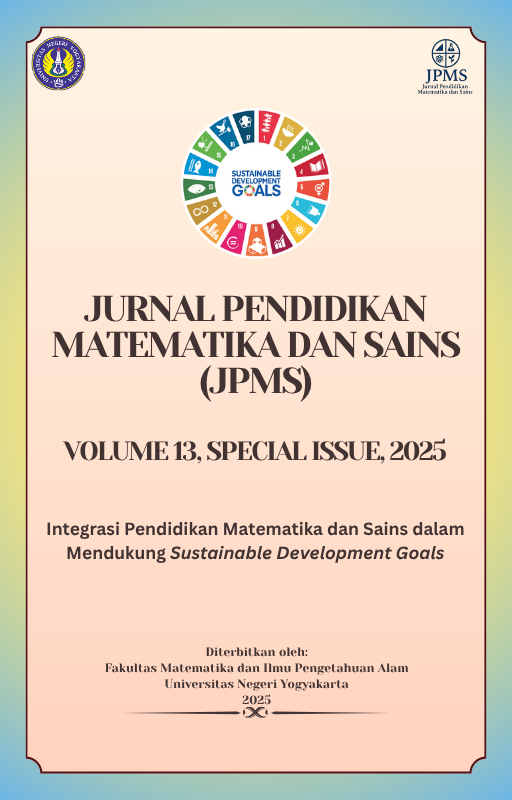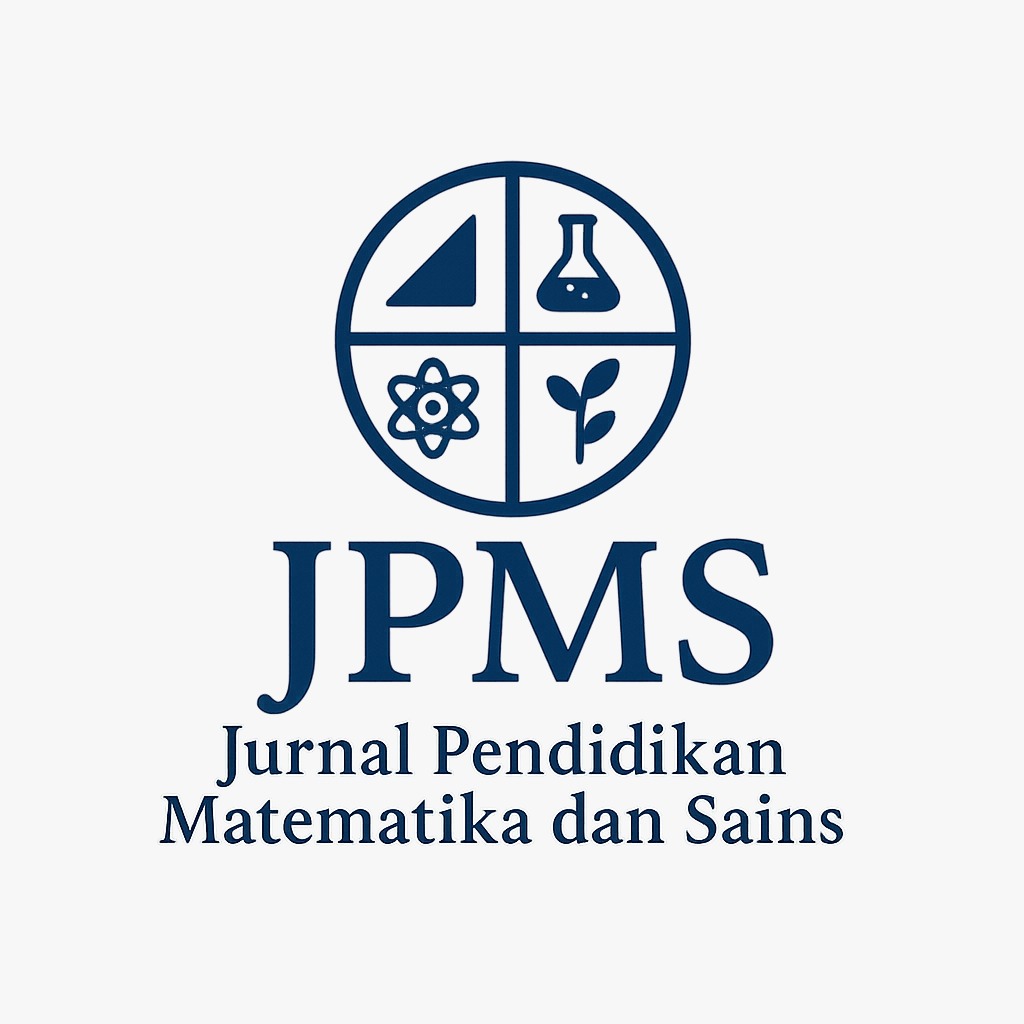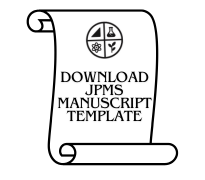Exploring Students' Attitudes and Interests in Learning Chemistry: A Survey of Junior High Schools in Bengkalis during Kurikulum Merdeka Implementation
DOI:
https://doi.org/10.21831/jpms.v13iSpecial_issue.88834Keywords:
Chemistry, Interest in learning, Kurikulum merdeka, Learning attitudeAbstract
Technological advances require education to continuously adapt, including through the implementation of the Kurikulum Merdeka, which emphasizes student-centered learning. This study aimed to describe the attitudes and interests in learning chemistry among junior high school students in Bengkalis Regency and to analyze gender-based differences during the Kurikulum Merdeka era. This quantitative research used a descriptive survey approach with a stratified random sampling technique involving seventh- and eighth-grade students from nine public junior high schools. A Likert-scale questionnaire measured four attitude indicators (perceived importance of chemistry, learning comfort, perceived difficulty, and usefulness of chemistry) and four interest indicators (attention, interest, enjoyment, and active involvement). The results showed that students’ attitudes toward learning chemistry were positive (73.99%), with the highest mean score (4.19) on the usefulness of chemistry indicator. Interest in learning chemistry was also positive (M = 3.92; 74.98%). A t-test indicated no significant gender differences in attitudes (p = 0.115 > 0.05) or interest (p = 0.677 > 0.05). These findings highlight the positive role of the Kurikulum Merdeka in fostering equitable learning experiences and support Sustainable Development Goal (SDG) 4: Quality Education by promoting inclusive, student-centered learning that enhances scientific literacy and lifelong learning skills.
References
Abukasim, S. M., Annisa, D., Sutrisno, H., Rohaeti, E., & Dahlan, J. (2025). Beyond intelligence: the power of grit in achieving cognitive excellence achievement in chemistry for sustainable education. Jurnal Pendidikan Matematika Dan Sains, 13(Special_issue), 1–12. https://doi.org/10.21831/jpms.v13iSpecial_issue.86217
Adodo, S. O., & Gbore, L. O. (2012). Prediction of attitude and interest of science students of different ability on their academic performance in basic science. International Journal of Psychology and Counselling, 4(6), 68–72. https://doi.org/10.5897/IJPC10.049
Arrosyad, M. I., Farahmad, E., & Nabila, H. (2024). Inovasi metode pembelajaran aktif untuk meningkatkan minat belajar siswa SD. Sport, Pedagogik, Recreation and Technology: Jurnal Ilmu Pendidikan Jasmani Olahraga, Kesehatan dan Rekreasi (Sparta), 7(1), 7–12. https://doi.org/10.35438/sparta.v7i1.252
Arvi, A. R. (2015). Sikap siswa dan minat belajar siswa terhadap hasil belajar IPA siswa kelas V sekolah dasar di Kabupaten Lamandau. Jurnal Pendidikan Dasar UNJ, 6(1), 11–23.
Cholilah, M., Tatuwo, A. G. P., Rosdiana, S. P., & Fatirul, A. N. (2023). Pengembangan kurikulum merdeka dalam satuan pendidikan serta implementasi kurikulum merdeka pada pembelajaran abad 21. Sanskara Pendidikan dan Pengajaran, 1(2), 56–67. https://doi.org/10.58812/spp.v1i02.110
Febriyana, M., & Winarti, W. (2021). Efektivitas model pembelajaran berbasis student centered learning untuk meningkatkan hasil belajar mahasiswa pada mata kuliah microteaching. EduTech: Jurnal Ilmu Pendidikan dan Ilmu Sosial, 7(2), 378–722. https://doi.org/10.30596/edutech.v7i2.7055
Felani, I., Ramdhani, T. N., & Hendriana, H. (2018). Kemampuan mengidentifikasi dan merumuskan masalah bangun datar serta minat belajar siswa SMP. JPMI (Jurnal Pembelajaran Matematika Inovatif), 1(3), 229–238. https://doi.org/10.22460/jpmi.v1i3.p229-238
Hanafi, M., & Ajizah, A. (2025, July). Kecenderungan penelitian tentang upaya peningkatan minat belajar biologi melalui pembelajaran yang berpusat pada siswa (student centered). In Seminar Nasional Pendidikan Biologi ULM (Vol. 1, No. 1, pp. 8–22).
Kurniawan, D. A., Astalini, A., & Kurniawan, N. (2019). Analisis sikap siswa SMP terhadap mata pelajaran IPA. Lentera Pendidikan: Jurnal Ilmu Tarbiyah dan Keguruan, 22(2), 323–334. https://doi.org/10.24252/lp.2019v22n2i14
Kurniawan, D. A., Astalini, A., Darmaji, D., & Melsayanti, R. (2019). Students’ attitude towards natural sciences. International Journal of Evaluation and Research in Education, 8(3), 455–460. https://doi.org/10.11591/ijere.v8i3.16395
Lestari, D., Asbari, M., & Yani, E. E. (2023). Kurikulum merdeka: Hakikat kurikulum dalam pendidikan. Journal of Information Systems and Management (JISMA), 2(6), 85–88. https://doi.org/10.4444/jisma.v2i6.840
Miah, M. (2024). Relevansi sikap ilmiah dalam pembelajaran IPA SD/MI dengan pembentukan karakter pelajar Pancasila. Indonesian Journal of Mathematics, Science, and Education, 2(2), 50–57.
Mulyasa, H. E. (2023). Implementasi kurikulum merdeka. Bumi Aksara.
Nurohman, S., & Suharyanto, S. (2009). Internalisasi scientific attitude mahasiswa pada Praktikum Fisika Dasar I melalui implementasi Inductive Teaching Methods. Jurnal Pendidikan Matematika Dan Sains, 14(2), 73–80. https://doi.org/10.21831/jpms.v14i2.310
Osborne, J., Simon, S., & Collins, S. (2003). Attitudes towards science: A review of the literature and its implications. International Journal of Science Education, 25(9), 1049–1079. https://doi.org/10.1080/0950069032000032199
Rijal, S., & Bachtiar, S. (2015). Hubungan antara sikap, kemandirian belajar, dan gaya belajar dengan hasil belajar kognitif siswa. Jurnal Bioedukatika, 3(2), 15–20.
Pratama, F. I., Rohaeti, E., & Laksono, E. W. (2024). Senior high school students’ scientific habits of mind profile on chemical equilibrium: case of health and environmental topics. Jurnal Pendidikan Matematika dan Sains, 12(1), 44–52. https://doi.org/10.21831/jpms.v12i1.74613
Pratama, F. I., Rohaeti, E., & Laksono, E. W. (2025). Building sustainable education with the literacy and research-oriented cooperative problem-based learning: A bridge in the activeness of chemistry education students. Jurnal Pendidikan Matematika Dan Sains, 13(Special_issue), 61–68. https://doi.org/10.21831/jpms.v13iSpecial_issue.88392
Putri, A. A., Saputro, S., & Ashadi, A. (2019). Hubungan sikap ilmiah dan motivasi berprestasi dengan persepsi siswa terhadap mata pelajaran kimia. Jurnal Pendidikan Kimia, 8(1), 94–100. https://doi.org/10.20961/jpkim.v8i1.22864
Rondoni, P., Zailani, A. K., Rohmin, E. M., & Walid, A. (2022). Analisis minat belajar siswa kelas IX SMP Negeri 14 Kota Bengkulu pada mata pelajaran IPA. Khazanah Pendidikan, 16(1), 1–6. https://doi.org/10.30595/jkp.v16i1.12196
Salmi, H. (2003). Science centres as learning laboratories: Experiences of Heureka, the Finnish Science Centre. International Journal of Technology Management, 25(5), 460–476.
Santrock, J. W. (2007). Psikologi perkembangan (Edisi 11, Jilid 1). Erlangga.
Setiawan, A., Nugroho, W., & Widyaningtyas, D. (2022). Pengaruh minat belajar terhadap hasil belajar siswa kelas VI SDN 1 Gamping. TANGGAP: Jurnal Riset dan Inovasi Pendidikan Dasar, 2(2), 92–109.
Simanjuntak, F. N. (2019). Pembelajaran berbasis kimia dalam kehidupan sehari-hari sebagai penyeimbang dampak revolusi industri 4.0. In Seminar Nasional Pendidikan Kimia FKIP Pendidikan Kimia Universitas Kristen Indonesia.
Sinaga, V. (2024). Implementasi kurikulum merdeka terhadap minat belajar siswa kelas XII SMA Budi Murni 2 Medan. Akuntanomics, 1(1), 16–22.
Sriponi, K. (2021). Minat belajar siswa kelas VIII SMP Negeri se-Kecamatan Sawan terhadap mata pelajaran IPA tahun ajaran 2019/2020 (Doctoral dissertation, Universitas Pendidikan Ganesha). https://doi.org/10.23887/jppsi.v4i1.33190
Syahbana, A., Asbari, M., Anggitia, V., & Andre, H. (2024). Revolusi pendidikan: Analisis kurikulum merdeka sebagai inovasi pendidikan. Journal of Information Systems and Management (JISMA), 3(2), 27–30. https://doi.org/10.4444/jisma.v3i2.935
Topcu, M. S., & Şahin-Pekmez, E. (2009). Turkish middle school students’ difficulties in learning genetics concepts. Journal of Turkish Science Education, 6(2), 55–62.
Trisnowali, A. (2017). Pengaruh motivasi berprestasi, minat belajar matematika, dan sikap belajar matematika terhadap hasil belajar matematika pada siswa SMAN 2 Watampone. Jurnal Matematika dan Pembelajaran, 5(2), 259–277.
Warsito, W. (2019). Peningkatan minat belajar matematika kelas IV melalui alat peraga layang-layang. Jurnal Sinektik, 2(2), 242–248. https://doi.org/10.33061/js.v2i2.3346
Widiyantoro, W. (2025). Analisis kurikulum merdeka mengenai sikap dan nilai siswa pada kelas menengah pertama. Harmoni Pendidikan: Jurnal Ilmu Pendidikan, 2(1), 314–321. https://doi.org/10.62383/hardik.v2i1.1084
Wiwita, R., & Handayani, R. (2023). Efektivitas modul pembelajaran berbasis proyek pada labor komputer. Edukatif: Jurnal Ilmu Pendidikan, 5(1), 248–258. https://doi.org/10.31004/edukatif.v5i1.3481
Yunita, Y., Zainuri, A., Ibrahim, I., Zulfi, A., & Mulyadi, M. (2023). Implementasi kurikulum merdeka belajar. Jambura Journal of Educational Management, 4(1), 16–25. https://doi.org/10.37411/jjem.v4i1.2122
Downloads
Published
How to Cite
Issue
Section
Citation Check
License

This work is licensed under a Creative Commons Attribution-ShareAlike 4.0 International License.
Jurnal Pendidikan Matematika dan Sains allows readers to read, download, copy, distribute, print, search, or link to its articles' full texts and allows readers to use them for any other lawful purpose. The journal allows the author(s) to hold the copyright without restrictions. Finally, the journal allows the author(s) to retain publishing rights without restrictions
- Authors are allowed to archive their submitted article in an open access repository
- Authors are allowed to archive the final published article in an open access repository with an acknowledgment of its initial publication in this journal

This work is licensed under a Creative Commons Attribution-ShareAlike 4.0 Generic License.





